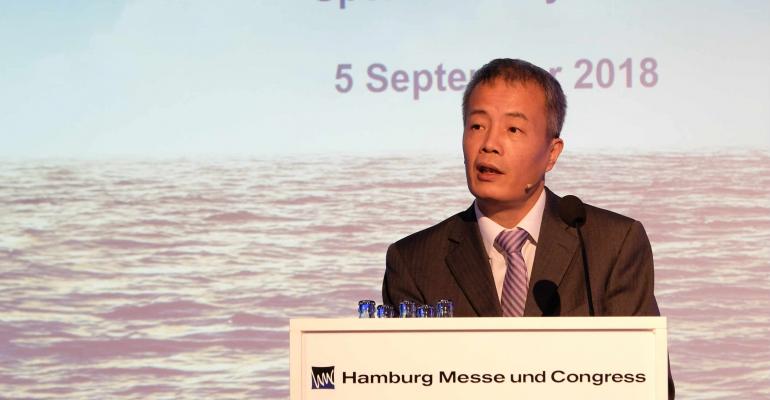Delivering the keynote address to an audience of around 100 delegates, the director of the International Maritime Organization’s Marine Environment Division, deputy director Tianbing Huang, spoke of the environmental challenges facing the industry. These included the need to fit ballast water treatment systems, implementation of the new 0.5% sulphur limit, and the IMO’s pledge to reduce shipping’s carbon emissions by at least 50% (from 2008 levels) by 2050 – all subjects discussed in the day-long gmec programme.
Sulphur guidelines being worked on for consistency
Regarding sulphur, Huang disclosed that the IMO is now working with Member States and industry on drawing up a set of guidelines to ‘help ensure consistent implementation’ of the new 2020 regulations which are due to be finalised at the 74th meeting of the international body’s Marine Environment Protection Committee (MEPc 74) in May 2019.
Areas where guidance will be provided include: risk assessment of the impact of new fuels; fuel oil system modifications and tank cleaning (if needed); fuel oil capacity and segregation capability; procurement of compliant fuel; fuel oil changeover plans; and documentation and reporting, he informed.
Meanwhile, draft rules prohibiting the carriage of non-compliant fuel for combustion purposes are likely to be finalised at MEPC 73 taking place later this year, the IMO official added.
Copyright © 2024. All rights reserved. Seatrade, a trading name of Informa Markets (UK) Limited. Add Seatrade Cruise News to your Google News feed.


